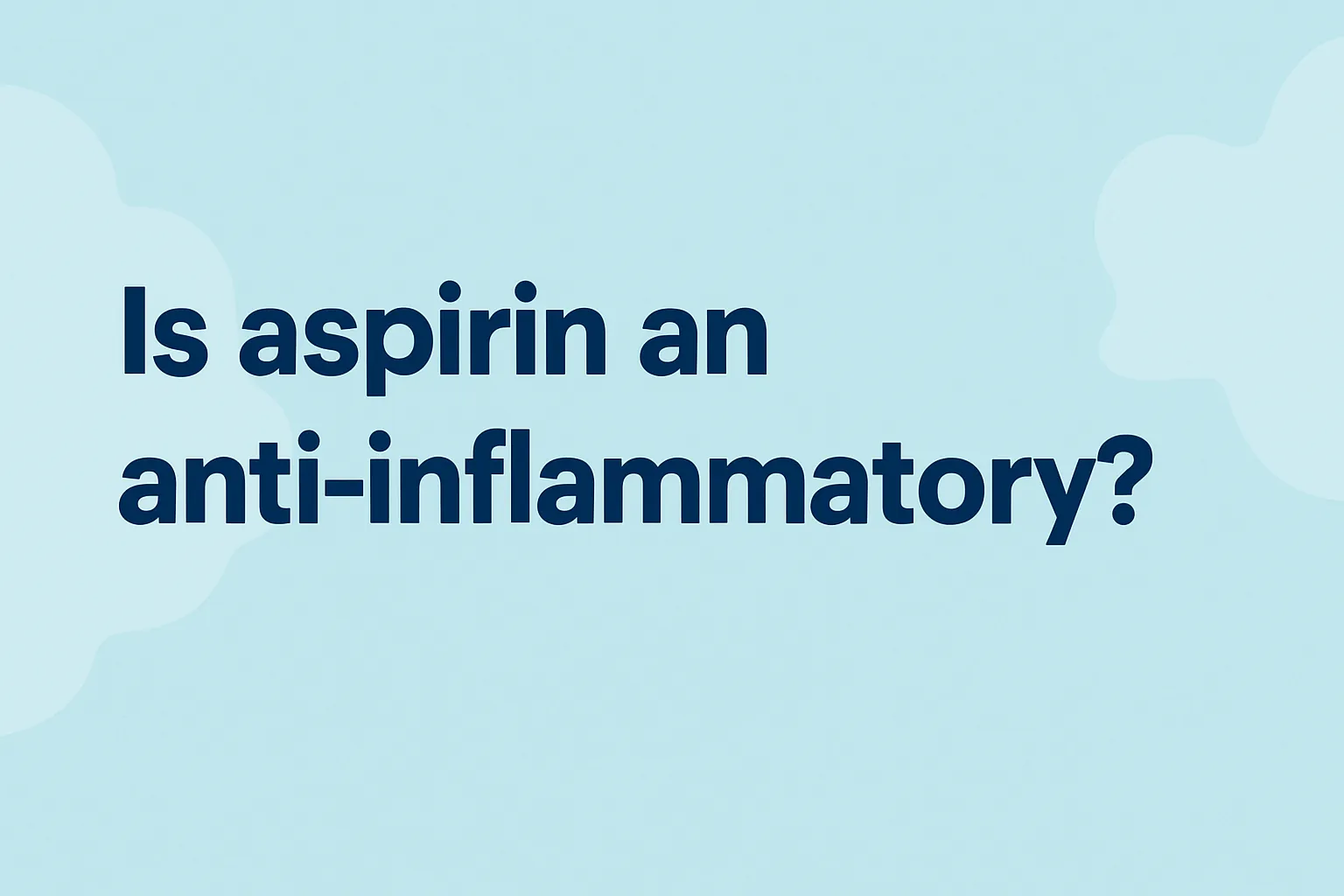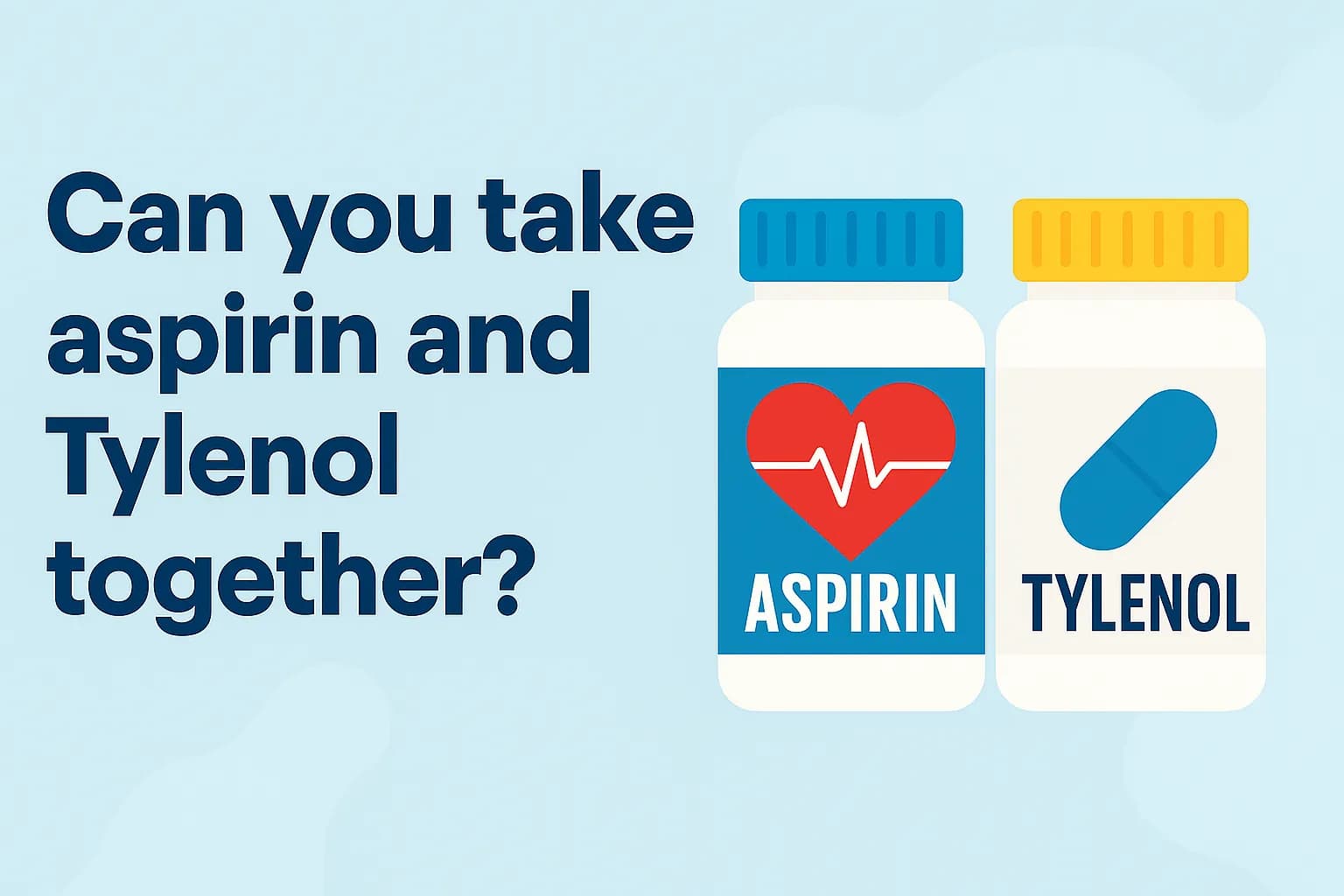Is aspirin an anti-inflammatory?

Yes, aspirin is a nonsteroidal anti-inflammatory drug (NSAID). It was the first drug in this class to be discovered and is also a salicylate, a compound found in plants like willow bark. Aspirin reduces inflammation, pain, and fever by blocking the body’s production of prostaglandins, natural chemicals released in response to injury.
What is aspirin used for?
- Pain relief: headaches, muscle aches, toothaches, menstrual cramps
- Fever reduction
- Inflammation reduction in conditions such as osteoarthritis and rheumatoid arthritis
- Blood thinning (antiplatelet): low-dose aspirin can help prevent blood clots, reducing the risk of heart attack and stroke in people with cardiovascular risk factors
How does aspirin work?
Aspirin blocks cyclooxygenase (COX) enzymes required for prostaglandin synthesis. At doses around 325 mg, it inhibits both COX‑1 and COX‑2 to relieve pain, fever, and inflammation. At low doses (about 81 mg/day), it preferentially inhibits COX‑1, reducing platelet aggregation and acting as a blood thinner.
What are the side effects of aspirin?
- Gastrointestinal issues: stomach pain, heartburn, nausea, vomiting
- Mild bleeding: easy bruising, prolonged minor bleeding
- Serious bleeding: stomach ulcers, gastrointestinal bleeding (black or tarry stools), hemorrhagic stroke
- Allergic reactions: hives, itching, swelling of face or throat, difficulty breathing
- Reye’s syndrome (in children/teenagers with viral infections)
- Kidney and liver effects with long-term or high-dose use
- Tinnitus or hearing loss at high doses
Seek medical advice for any unusual bleeding or severe side effects.
What drug interactions are there with aspirin?
Aspirin can interact with:
Shop Medications
- Other NSAIDs (ibuprofen, naproxen, diclofenac)
- Anticoagulants and antiplatelets (warfarin, clopidogrel, apixaban)
- Selective serotonin reuptake inhibitors (SSRIs)
- Blood pressure medications (ACE inhibitors, diuretics)
- Steroids (prednisone)
- Certain supplements (feverfew, garlic, ginger, ginkgo biloba)
- Alcohol
What warnings or precautions are there with aspirin?
Tell your healthcare provider if you have or have had:
- Allergy to aspirin or other NSAIDs
- Stomach ulcers or gastrointestinal bleeding
- Bleeding disorders
- Liver or kidney disease
- Asthma or respiratory issues
- Pregnancy or breastfeeding
Is it safe to take aspirin every day?
Daily low-dose aspirin may be recommended to prevent heart attack or stroke in people at high cardiovascular risk. However, routine daily use is not advised for those at low risk due to bleeding dangers. Discuss the benefits and risks with your healthcare provider.
Related Medications
- Tylenol (acetaminophen)
- Bayer Enteric-Coated Aspirin (acetylsalicylic acid)
- Advil (ibuprofen)
- Aleve (naproxen)
- Plavix (clopidogrel)
- Coumadin (warfarin)
- Xarelto (rivaroxaban)
Sources
- American Heart Association. Aspirin and heart disease. Accessed Sept. 10, 2024.
- Food and Drug Administration. Aspirin for reducing your risk of heart attack and stroke: Know the facts. Accessed Sept. 10, 2024.
- Medscape. Aspirin (Rx, OTC). Accessed Sept. 10, 2024.
- Arnett et al. 2019 ACC/AHA Guideline on the Primary Prevention of Cardiovascular Disease. JACC. 2019 Sep;74(10):e177–e232. Accessed Sept. 10, 2024.





